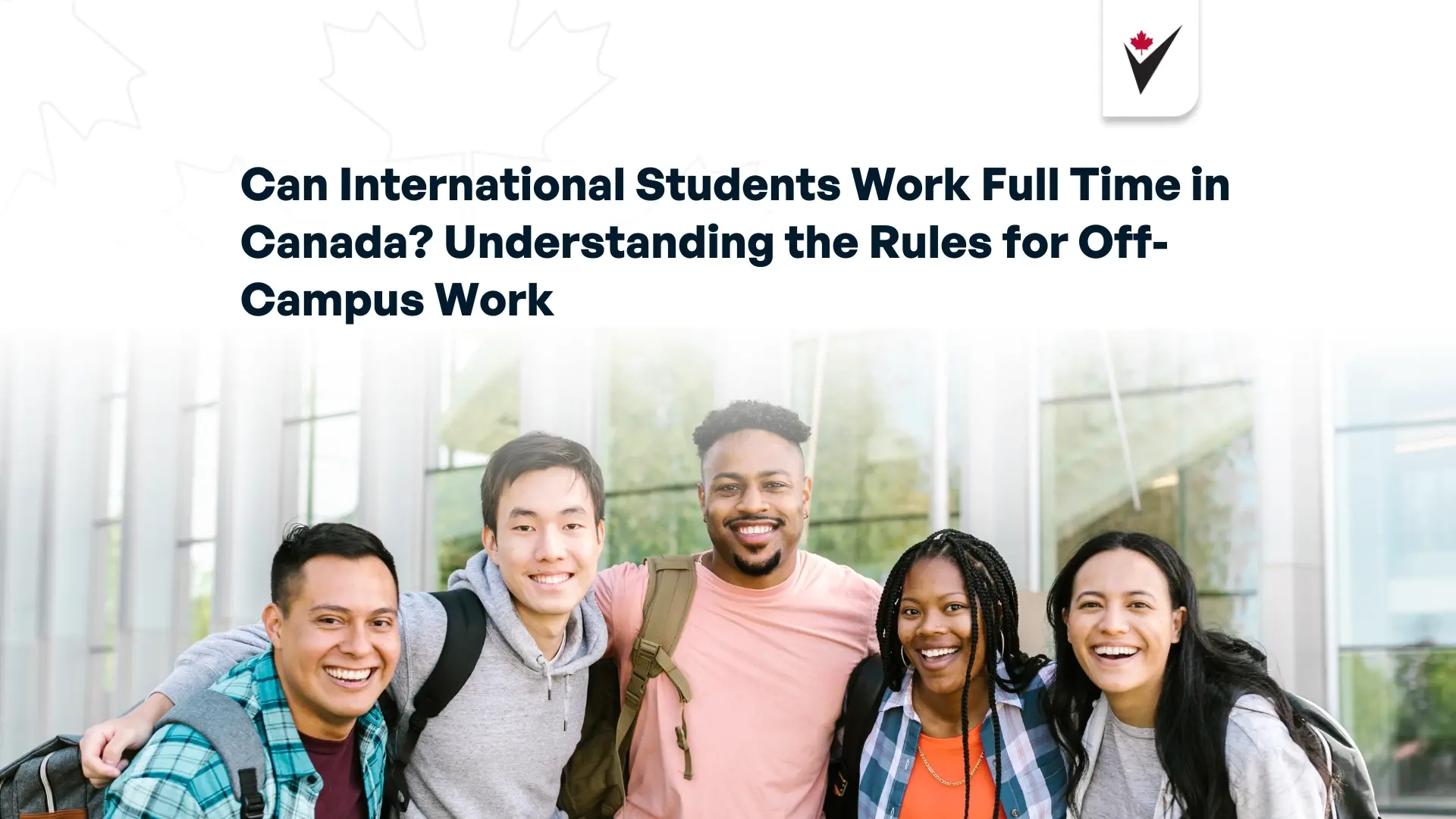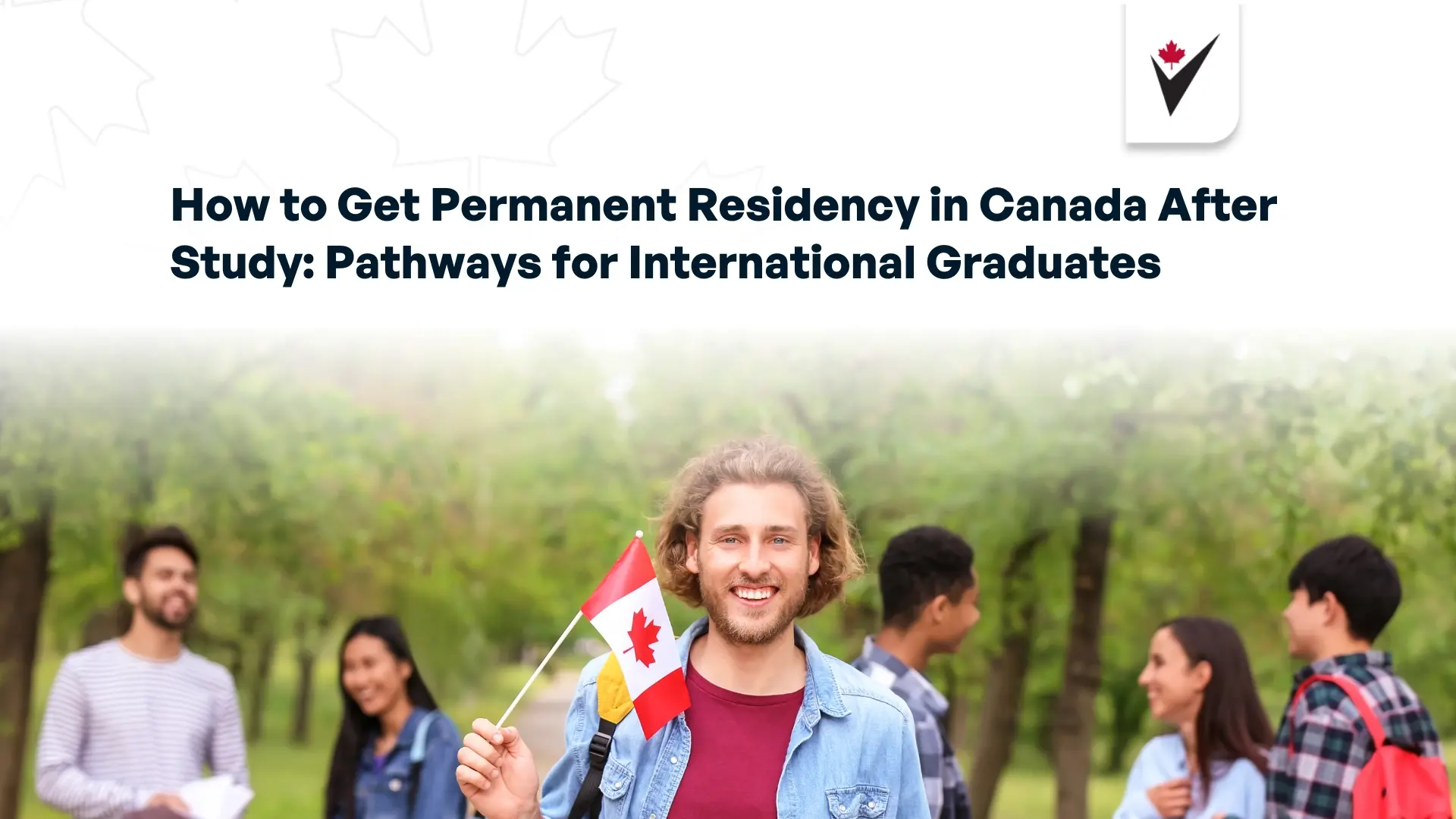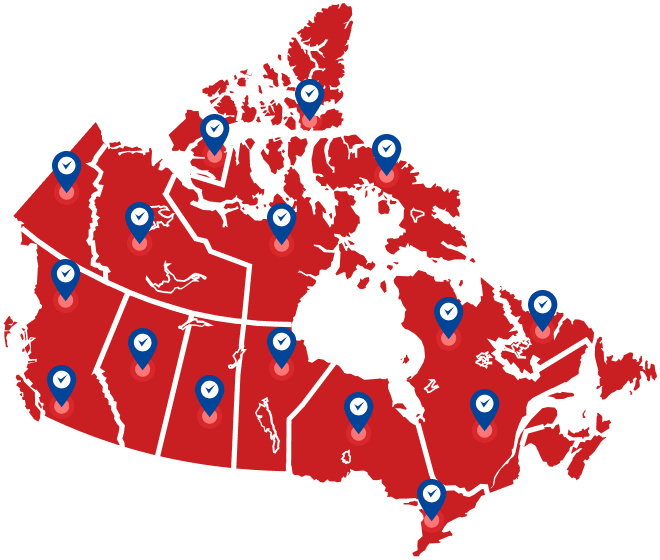- Study
- Study in Canada
Canada Student Visa Consultant
Get the expert assistance you need to study in Canada as an international student.


Regulated Canadian Immigration Consultants (RCIC-IRB)
Proudly regulated by and in good standing with the College of Immigration and Citizenship Consultants (CICC). Registration #: R507233.

Realize Your Canadian Education Goals
With top-ranked universities, a reputation for quality education, attractive post-study work options, and established pathways to immigration, Canada is one of the premier destinations for many international students.
At CanDo Immigration, we help aspiring students make their Canadian study dreams a reality with tailored immigration services, advice, and assistance throughout the entire study permit application process.

Canadian Study Permit Assistance From Application to Approval
From initial study permit application to post-graduation strategies, CanDo Immigration is here to help you study and smoothly launch your career in Canada to realize your long-term Canadian immigration goals.
Study Permit
If you’re an international student wishing to study at a designated learning institution in Canada, CanDo Immigration can provide expert guidance through every step of your study permit process.
Student Direct Stream (SDS)
CanDo offers specialized assistance for students from eligible countries aiming to expedite their study permit process through the Student Direct Stream (SDS). As leading study visa immigration consultants, our team will ensure your application is complete, accurate, and presented in the best possible light.
Post-Graduate Work Permit (PGWP)
If you’re an international student who has graduated from an eligible Canadian institution, CanDo offers personalized support at every step of the PGWP process. Our trusted student visa consultants in Canada will ensure your smooth transition from student to the Canadian workforce.
Meet Juliana, Your Study Permit Expert!
Juliana is our dedicated educational consultant with a diverse marketing, education, and project management background.
With two bachelor’s degrees in Communication and Marketing and Architecture from Fortaleza, Brazil, Juliana furthered her educational journey with a Diploma in Marketing Management in Vancouver (BCIT), Canada.
Based in Vancouver, Juliana leverages her expertise to assist clients in navigating Canada's academic system with precision and care.

Our Study Permit Success Through the Eyes of Our Clients
Sheryl Salazar
From the initial consultation to the final approval, Cando Canadian Immigration Services demonstrated exceptional professionalism and expertise.
Drixine Clasicas
My husband and I had an absolutely AMAZING experience with CanDo Immigration! Their team went above and beyond to make the entire Work Permit process smooth and stress-free. They were incredibly knowledgeable, super responsive, and truly cared about our case.
Alexia Riley
Cando is the best option for all your immigration needs. I highly recommend them. They were very proficient and effective during my process, from the initial processing of my work permit to the acquisition of my Permanent Residency.
Momar Mundoc
Amazing service and I highly recommend CanDo Canadian Immigration Services.
April Condinato
I wanted to express my sincere gratitude for your unwavering support in helping me achieve my goal. Your guidance and encouragement were instrumental in my success, and I truly appreciate the positive impact you've had on my journey.
Mry Lrrn
To Cando Immigration Services, your expertise and dedication transformed what could have been a daunting process into a manageable and even enjoyable experience.
Aetherika
Jamie, Maria and Marta have been an exceptional team throughout my journey from newcomer to PR holder. I cannot stress enough how capable the entire Cando team is even working on a tricky and time sensitive case nobody else would touch.
Precious Joy Ramirez
Approachable staff, very attentive to queries and responds quickly.
Jose Asi (JAS)
I had a fantastic experience with Cando immigration consultant. Thank you Sir Jamie Dowla and his father Marshall & the whole team.
Roselyn Macion-Molina
Highly recommended! We applied for family of 3 and I must say that CANDO did an excellent job with our application.
Okeya Habib
They were with me on every step. And Gayle was amazing. One can rely on them blindly.
Fhel Dabu
I am delighted with the service, that we have received from Cando Team. I was not expecting this service of expertise and professionalism. The efficiency that we experience along the process. Attention to details and the passion to be of service.
Kaminski Krew
We cannot Thank Cando Family enough for all the Hard work they put into helping our Family with our Immigration to Finally our Citizenship! The Professionalism and Patience shown in helping us along the way (multi Nationality Family) has been Key.
Charisse Bagsic
I am very much satisfied with how everyone at Cando helped me in every step of my application. Jaime and his whole team has been very kind and professional, they guided me well through the process.
MT GS
Highly recommended! Cando did an amazing job throughout my application. I was hopeless with my Canadian dream, but when I started my application with cando, I put my 100% trust on them.
Why Trust CanDo With Your Canadian Student Permit Application
Successful Student Visa Applications
Our immigration consultants have demonstrated experience and expertise in navigating the intricate Canadian study visa and immigration systems. It’s our mission to deliver positive outcomes for aspiring international students wanting to study in Canada with a valid Canadian student visa.
We’re Here For You Every Step of the Way
With CanDo Immigration, you have a dedicated partner committed to facilitating every aspect of your Canadian student visa and study permit application. As trusted student visa consultants in Canada, we ensure a smooth transition to your new life in Canada.
A Tailored Approach to Your Student Visa Application
Our specialized Canada study visa consultants collaborate directly with you to tailor study programs based on your education and immigration goals. We will consider factors such as your educational background, nationality, and finances to maximize your chances of a successful Canadian student visa application.
Guiding You with Transparency and Trust
Our team of dedicated Canadian student visa consulting experts is committed to leading applicants through each phase of the process with unwavering honesty and integrity. As reliable student visa consultants, we keep the lines of communication open, guaranteeing you're thoroughly briefed at every stage.
Canadian Immigration News, Tips, and Resources

Can International Students Work Full Time in Canada? Understanding the Rules for Off-Campus Work
Studying in Canada opens doors to world-class education, exciting career opportunities, and a vibrant multicultural experience. For many international students, working while studying is a crucial
read more
How to Get Permanent Residency in Canada After Study: Pathways for International Graduates
For many international students, studying in Canada is the first step toward building a life in one of the most welcoming and diverse countries in the world. From high-quality education to strong job
read more
What is LMIA in Canada: An Overview for Canadian Employers
If you're a Canadian employer planning to hire a foreign worker, you'll need to navigate the Labour Market Impact Assessment (LMIA) process. This crucial step helps ensure that hiring a foreign
read moreFind Your Dedicated Study Visa Consultant Wherever You Are Located
We assist clients worldwide with Canadian study permit applications. See the cities below to find your regulated Canadian immigration consultant.

Speak to an International Student Specialist at CanDo Immigration.
Let CanDo Immigration’s study visa experts help you through every step of your application.
Frequently Asked Questions
What is the difference between a study visa and a study permit?
A study visa is a travel document that allows you to enter Canada for the purpose of studying. It is not the same as a study permit, but rather a necessary component for individuals from visa-required countries
A study permit is an official authorization issued by the Canadian government that allows foreign nationals to study in Canada. The permit is issued at the Canadian port of entry when the student lands in Canada. It is a crucial document for those planning to pursue academic programs exceeding six months. At CanDo Immigration, our immigration specialists can clarify the differences and requirements for each.
Who needs a study permit to study in Canada?
The following people need to have a study permit for Canada:
- Foreign nationals enrolling in academic, professional, vocational, or training programs at Canadian colleges and universities.
- Individuals studying for more than six months, or if the program is shorter than six months and they are required to work in Canada as part of their program of study.
- Individuals studying at a Designated Learning Institution (DLI), an educational institution that is designated to host international students.
Exceptions to the study permit requirement include those taking an English or French short-term course for less than six months, a short-term course of general interest or self-improvement, a distance learning program, or an audited course. These individuals are not required to have a study permit to enter Canada. However, depending on their country of origin, they may still require a travel visa to enter Canada.
What are the requirements for applying for a Canadian study permit?
The following are required to apply for a study permit for Canada:
- Letter of Acceptance (LOA): The student must have been accepted at a Designated Learning Institution (DLI) to take an academic, professional, vocational or training program of study.
- Proof of funds: The student must provide proof of funds to support themselves and accompanying family members, if applicable, in Canada in the first year, including tuition fees, living expenses, and returning transportation to their home country.
- Criminal records: The student should have no criminal records and provide a police certificate if from a country for which the certificate is required.
- Health check: International students must be in good health and provide medical exam results if from a country for which the medical exam is required.
- Proof of ties to home country: International students must prove to the immigration officer that they will leave Canada when their study permit expires.
Can I work in Canada as an international student?
Yes, in most cases, international students are allowed to work in Canada while studying.
Immigration Canada will specify on the student’s study permit whether the student can work in Canada.
In general, international students can work:
- After starting their study program, on or off the school campus
- As a co-op student or intern, when their study program includes work experience as part of its curriculum
- After graduation, if you meet the eligibility requirements for a Post Graduate Work Permit